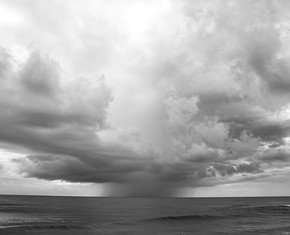The views expressed in our content reflect individual perspectives and do not represent the authoritative views of the Baha'i Faith.
According to the Torah – the Old Testament of the Bible – Abraham lived in a society near Baghdad that worshiped many gods. His message brought monotheism, the belief in only one God, to the Western world.
When Abraham revealed that new religious message of monotheism, it led to his persecution and his journey to Canaan, in present day Israel:
… the Lord appeared to Abram, and said unto him: “I am God Almighty; walk before Me, and be thou wholehearted. And I will make My covenant between Me and thee, and will multiply thee exceedingly.” – The Torah, Genesis, 17:1-7.
God told Abraham that his seed would inherit the land. Abraham had a son, Ishmael, by his wife’s maidservant Hagar, another son, Isaac, by his wife Sarah, and through these children Abraham’s descendants have fulfilled God’s plan. Moses, the founder of Judaism, and Jesus, the founder of Christianity, trace their ancestors to Isaac, son of Sarah.
Moses and Judaism
Even though the Jews had been slaves in Egypt for over 300 years, Moses, a Jew, became influential in the Egyptian Court, and after receiving a message from Yahweh (God) through a “burning bush” In about 1250 BCE, he liberated the Jewish people and led them across the Red Sea – first to the Sinai Peninsula and then to Palestine, an unimportant and relatively barren land populated with farms, small villages, and a few major cities like Jericho. For centuries that region had been overrun and dominated by Egypt to the east and Babylon to the west.
The teachings of Moses, recorded in the Torah (and the Old Testament in the Christian Bible), center around the Ten Commandments, which have been universally recognized and incorporated into the codes of justice of many lands. Moses also taught specific dietary laws, such as not eating pork or shellfish.
The Ten Commandments
The first three of the Ten Commandants comprise spiritual teachings concerning the relationship between the Jews and God, and the next seven Commandments give teachings which guided the Jews in their social relationships: honor your parents, do not commit murder, do not covet other people’s possessions, etc.
After arriving in Palestine, the Jewish people strove to live according to the laws given to them by Moses. They organized into a loose federation of 12 tribes, coming together when faced with foreign threats. Eventually they created a monarchy under King Saul, followed by King David who in 1,000 BCE developed the Jewish Empire, centered in Jerusalem. Then, under King Solomon, the Jewish people reached their pinnacle of influence, military power, and prosperity.
The Baha’i teachings say that the influence of Abraham and Moses, which arose in the global East, had a profound influence on the entire world – and that many of the great Faiths, including the Baha’i Faith, followed that same pattern:
Abraham appeared in the East. In the East Moses arose to lead and teach the people. On the Eastern horizon arose the Lord Christ. Muhammad was sent to an Eastern nation. The Bab arose in the Eastern land of Persia. Baha’u’llah lived and taught in the East. All the great Spiritual Teachers arose in the Eastern world. But although the Sun of Christ dawned in the East the radiance thereof was apparent in the West, where the effulgence of its glory was more clearly seen. The divine light of His Teaching shone with a greater force in the Western world, where it has made a more rapid headway than in the land of its birth. – Abdu’l-Baha, Paris Talks, p. 24.
The Jewish Empire, impelled by the moral and spiritual teachings of Moses, dominated the region from Egypt to Babylon, grew into a military and economic powerhouse, and became a Mediterranean maritime power trading manufactured goods, horses, chariots and precious metals. That civilization developed magnificent architecture, including King Solomon’s palace and temple. King David was an author, skilled harpist, poet, singer, and introduced music into religious rites. They developed an improved alphabet and many other important contributions to human knowledge and culture.
















Comments
Sign in or create an account
Continue with Googleor